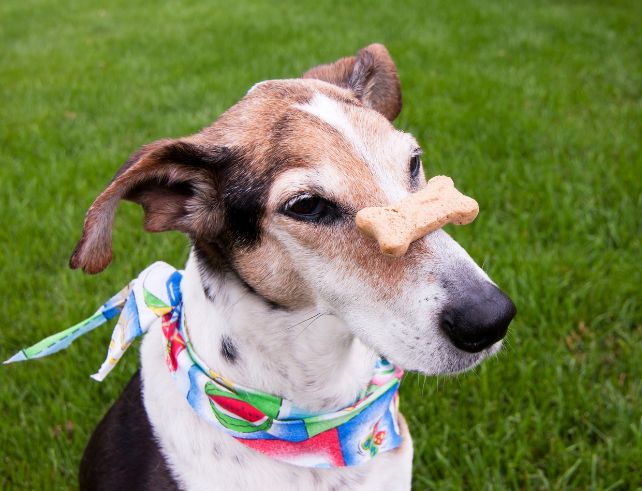Hello again, pet lovers, and welcome back to Let’s Have Pet! Today, we’re diving into the important topic of “Dog Nutrition Essentials.” It’s about more than just feeding your dog. To keep your canine buddy in top shape, you need to understand what their diet should consist of.
Understanding Your Dog’s Food Needs

First, let’s think about what a good diet for dogs needs. Like us, dogs need a mix of key parts in their food. These are proteins, carbs, fats, vitamins, minerals, and water. Each one plays a big part in their overall health.
Proteins are needed for growth and keeping up their health. They also supply energy and help repair cells and tissues.
Carbs are the main source of energy for your pet.
Fats, although dense in energy, are needed because they provide key fatty acids and help absorb nutrients.
Vitamins and minerals are needed for nerve function and boosting the immune system.
Last but not least, water is needed for maintaining healthy bodily functions.
Picking the Right Food

With so many pet food brands, choosing the right one can seem hard. But, there are a few things you should look for. First, look for foods labeled as ‘complete and balanced.’ This term means the food meets the basic standards set by the Association of American Feed Control Officials (AAFCO). Second, the food should be right for your dog’s age, breed, size, and health.
Thinking About a Homemade Diet?

If you’re thinking about a homemade diet for your dog, it’s a good idea to check with a pet food expert. It can be hard to get the balance right with homemade meals, but with the right help, you can avoid giving too much or too little of certain parts.
How Much and How Often to Feed

Figuring out how much and how often to feed your dog depends on a few things, like their age, size, breed, and lifestyle. In general, puppies should eat three times a day until they’re around 6 months old. Adult dogs should eat twice a day.
Instead of giving one big meal, it’s better to split the meal into two or more feedings. This can help stop your dog from bloating, especially in larger breeds. Plus, portion control is key to stopping your dog from gaining too much weight.
Food Allergies and Sensitivities

Sadly, some dogs may react badly to certain types of food. If your dog has tummy problems such as vomiting or diarrhea, or skin issues like itching and redness, it’s key to see your vet. They may suggest a special diet or a food trial to find out what’s causing the problem.
Supplements

As a general rule, a ‘complete and balanced’ commercial diet should be enough, and won’t need extra supplements. However, there may be times or health issues that need extra nutrients. Before adding supplements to your dog’s diet, you should always check with your vet.
Treats

We all love giving our pets treats! But remember, treats should only make up about 10% of your dog’s daily food intake. Giving too many treats can lead to weight gain and nutrient imbalances.
Wrapping Up

To ensure the overall health and happiness of your dog, providing the right food is key. A good diet for your dog should include the right mix of proteins, carbs, fats, vitamins, minerals, and water. Pick high-quality, ‘complete and balanced’ dog food that’s right for your pet’s age, size, breed, and health. Always check with your vet before making big changes to your dog’s diet or adding supplements.
While every dog is unique with changing food needs, with patience, knowledge, and a little help from your vet, you can make sure your furry friend thrives!
Join us again soon on Let’s Have Pet as we keep exploring all the knowledge you need to keep your pets healthy and happy! Read others
At ‘Let’s Have Pet,’ we are committed to providing you with the latest pet care trends and products. Remember to visit our website, www.letshavepet.com, for more pet care insights and a range of high-quality pet care products.

